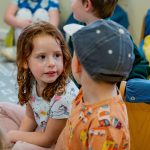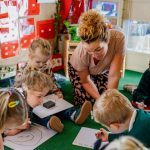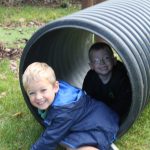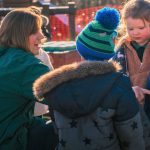About our Curriculum intent
Communication, Nurture and Kindness are attributes that run through the heart of Tenterfield Nursery and continue to be at the forefront of our curriculum intent.
All adults use a total communication approach in the Nursery so that all children are included and given the best opportunity to develop their communication skills and express their wants and needs. Whatever their ability or level of need, all children are listened to and adults find ways to communicate with them effectively. Children are taught to respect each other and how to be kind and caring towards each other so that everyone feels included and well-being is high.
The learni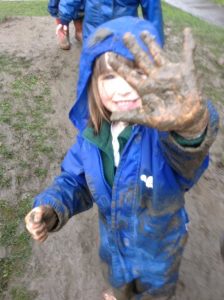 ng environment is organised to enable children to access irresistible, fascinating resources that reflect a broad and balanced curriculum. Through a thorough induction process they are given a solid platform to be independent learners in the environment and develop skills for lifelong learning. Regular visits to our forest school allow us to focus on the importance of nature; adults strive to capture and build upon ‘Awe and Wonder’ moments in the world.
ng environment is organised to enable children to access irresistible, fascinating resources that reflect a broad and balanced curriculum. Through a thorough induction process they are given a solid platform to be independent learners in the environment and develop skills for lifelong learning. Regular visits to our forest school allow us to focus on the importance of nature; adults strive to capture and build upon ‘Awe and Wonder’ moments in the world.
Children are taught to be resilient and independent learners and are supported by interested, supportive adults who know each child’s individual needs. They look to foster ‘a can do’ attitude where children learn to keep trying if they don’t succeed at first, whatever their ability or level of development. All children are treated as individuals and adults build relationships with children and use their observations to understand and assess development. They then use this information to respond either in the moment or plan individual activities. Staff capture what motivates them as individuals and build upon those skills to introduce them to new concepts of learning. Therefore learning is exciting, relevant, playful, meaningful and irresistible.
Curriculum Goals
We intend every child to:

- To build secure relationships that make them feel happy and safe, so that they can confidently express their feelings, wants, needs & desires independently. (Personal, Social & Emotional)
- To develop their attention & listening skills so that they can confidently communicate their thoughts and ideas. (Communication & Language)
- To learn how to move and control their body safely, so that they can explore and challenge themselves to take risks. To start to co-ordinate and refine their smaller movements to use a variety of tools purposefully. (Physical)
- To use mathematical language and begin to understand how I use maths and numbers every day in the world around me. (Mathematics)
- To learn about letters, sounds and words by exploring a range of books and developing a love for stories. (Literacy)
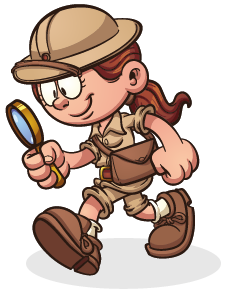 To express myself freely with creativity & imagination, in ways that make me happy. (Expressive Arts & Design)
To express myself freely with creativity & imagination, in ways that make me happy. (Expressive Arts & Design)- To explore the awe and wonder of my world with curiosity and understand how I and others fit into it. (Understanding our World)
Please explore our Milestone curriculum pages for more information about how we teach the children to reach these goals through developmental milestones.
Enabling Environments
Children learn and develop well in enabling environments with teaching and support from adults, who respond to individual interests and needs and help them to build learning over time. Children benefit from a strong partnership between practitioners and parents and/or carers.
- Rich environment where both outdoor and indoor learning is equally valued.
- Workshop style learning areas where children can explore and learn independently.
- ‘Total Communication’ approach.
- A routine that allows for long periods of child-initiated learning, so children can immerse themselves in their play.
- Irresistible experiences offered to the children through provocations in the environment.
- Resources and provision adapted to reflect a sequential progression of skills and to provide appropriate challenge as children develop their capabilities throughout the year.
- Knowledge of child development and PSED are at the core of our curriculum and support our emotional environment
Learning and development
The importance of learning and development. Children develop and learn different rates.
- Adults sensitively engage children in ‘teachable learning moments’ (planning in the moment)
- First-hand experiences create a sense of ‘awe and wonder’
- Progression of skills underpinned by a strong understanding of child development.
- Pupil progress monitored and interventions identified to close gaps and provide challenge.
- Observations of children’s learning include the identification of the characteristics of effective learning.
- The promotion of British Values is firmly embedded within our own values, our curriculum and in the practice of staff Learning is celebrated and shared between home and nursery via Tapestry (Online Learning Journal)
- Early Literacy skills supported as children become developmentally ready.
- Core books and weekly story planning instil a love of reading.
- Professional development and a pedagogical approach to teaching is central to the development of the Staff Team. Encouraging opportunities to explore passions and interests and enhance the skills and understanding needed to support children’s learning.
Positive relationships
Children learn to be strong and independent through positive relationships.
- A sense of belonging for all children, families and staff in our ‘Tenterfield Family’.
- Shared ethos and core values; ‘Family, Nurturing, Aspirational, Inclusive’.
- Family style approach to learning with mixed age-groups, including sibling groups, learning together and from one another in one environment.
- Key person fosters a sense of professional love.
- High levels of well-being seen as the foundation to all other learning.
- Team approach to supporting all children.
- Principles of nurture and attachment secured by ‘attachment adult’ roles.
- Strong partnerships with parents, encouraging them to come along their child’s learning journey with us.
- ‘Team around the Family’ support with strong relationships with external professionals.
Unique Child
Every child is a unique child, who is constantly learning and can be resilient, capable, confident, and self-assured.
- Individual transition tailored to the needs of each child.
- All children are treated as individuals and adults build relationships with children and use their observations to understand and assess development.
- All children are listened to and adults find ways to communicate with them effectively.
- Independence promoted throughout. Child-led learning builds on what the children ‘can do’.
- Inclusivity and ‘equity’ of opportunity is offered through personalised curriculums and timetables for children with complex and individual needs.
- Children are taught to be resilient and independent learners and are supported by interested, supportive adults who know each child’s individual needs.
 ng environment is organised to enable children to access irresistible, fascinating resources that reflect a broad and balanced curriculum. Through a thorough induction process they are given a solid platform to be independent learners in the environment and develop skills for lifelong learning. Regular visits to our forest school allow us to focus on the importance of nature; adults strive to capture and build upon ‘Awe and Wonder’ moments in the world.
ng environment is organised to enable children to access irresistible, fascinating resources that reflect a broad and balanced curriculum. Through a thorough induction process they are given a solid platform to be independent learners in the environment and develop skills for lifelong learning. Regular visits to our forest school allow us to focus on the importance of nature; adults strive to capture and build upon ‘Awe and Wonder’ moments in the world.
 To express myself freely with creativity & imagination, in ways that make me happy. (Expressive Arts & Design)
To express myself freely with creativity & imagination, in ways that make me happy. (Expressive Arts & Design)
